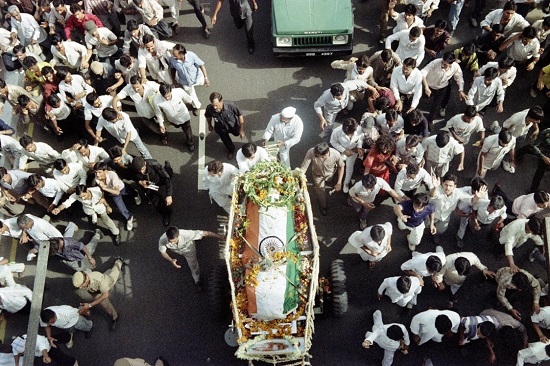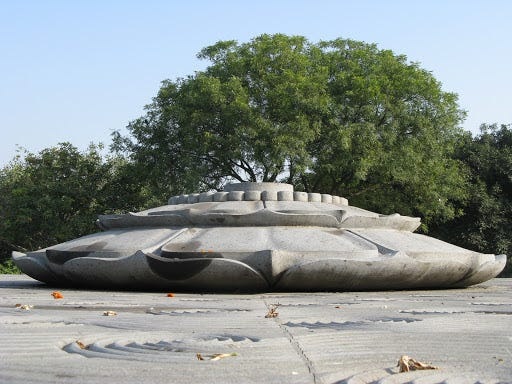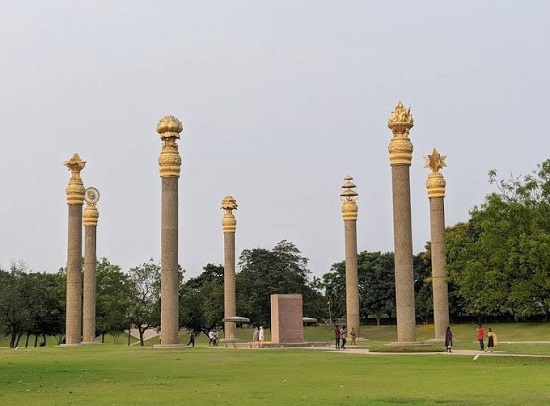32-years on: The tragic assassination of Rajiv Gandhi & his enduring legacy....by KBS Sidhu
21st May 1991 is still clearly etched on my mind. At that time, I was posted as Additional Deputy Commissioner, in Amritsar, Punjab. The State had been under President’s Rule since 1987. Today, exactly 32 years have passed since the tragic assassination of Mr. Rajiv Gandhi, the esteemed former Prime Minister of India.
As I reflect upon the events of that fateful day, a wave of memories, emotions, and grief engulfs me. Faint echoes of that monumental loss continue to reverberate not only within my being but also perhaps within the hearts of countless individuals across Punjab and the entire nation. In this short piece, I endeavor to encapsulate not only my recollection of the events of the grim day but also to capture his impact on my journey as a civil servant, the state of Punjab, and the collective spirit of our country.
General Elections 1991: Mr. VP Singh had become the Prime Minister of India after the 1989 Lok Sabha elections but neither his Government nor the subsequent ones lasted long. The country was inevitably plunged into general elections in May 1991, with Mr. TN Seshan at the helm as the Chief Election Commissioner. Election to the 13 Lok Sabha constituencies in Punjab as well as those in Jammu and Kashmir were, however, not held along with the rest of the country, on account of the disturbed conditions.
As a part of the civil administration in Amritsar, I must confess that we were feeling a little bit disappointed at being left out of the electoral action, but the atmosphere in the state was not conducive to holding free and fair elections. We were more like silent spectators as the elections rolled out. By 21st May 1991 elections in most of the states had taken place and only the final round of polling remained.
The Fateful Day: I clearly remember that 21st May was a holiday as I was at home around 11.00 AM. Suddenly, I got a call from the General Assistant to the Deputy Commissioner: “Sir, Mr. Rajiv Gandhi has been assassinated. Elections have been postponed. Tonight’s dinner stands canceled.” I was shell-shocked and before I could ask him for any further details, the phone call was cut. Having served in Amritsar for over a year now, I was mentally acclimatized to hearing disturbing news but nothing had prepared me for a devastating incident like this one.
Those were the days before either satellite TV or Cable Networks, not to speak of Internet, and Doordarshan and radio were the only channels of reliable news. The initial details were sketchy.
It appeared that My Rajiv Gandhi had been killed at Sriperumbudur in Tamil Nadu in a bomb blast. No one was yet blaming the LTTE directly, although oblique references were being made. It was also reported that Mr Seshan had postponed the remaining phase(s) of the Lok Sabha elections immediately. The Bombay Stock Market had plunged and had been temporarily closed.
Such postponement of Lok Sabha elections was unprecedented but keeping in view the magnitude of the tragedy, no one was going into the legal niceties, whether the ECI could do so, especially when the election to the Amethi Lok Sabha constituency, from where My Rajiv Gandhi was contesting, had already concluded in an earlier phase.
No Punjab Angle: When this tragic news slowly sunk in, during the peak of the Punjab summer, I must confess, there was an underlying but unstated sense of relief that there was no “Punjab angle” to the assassination. The people of Punjab in general and the Sikhs living outside the state, did not want the nightmare of 1984 to be repeated. The Nation mourned the loss of the leader who was widely expected to be the next Prime Minister he country. Condolences messages from world leaders poured in and his cremation was performed in Delhi under very tight security.

Life slowly limped back toward normalcy. After a brief interlude, the polling to the remaining phases was concluded peacefully, and in the case of Amethi, counting went on as usual and after late Rajiv Gandhi was found to have polled the maximum number of votes, he was notionally declared elected.
Simultaneously, the seat was declared as vacant on account of the demise of Mr Rajiv Gandhi, paving way for a by-election subsequently. As events unfolded, PV Narsimha Rao formed a Congress-lead minority Government in the country. It was during the tenure of Mr Narsimha Rao that Punjab finally got a democratically elected Government lead by Sardar Beant in Singh in February 1992, albeit after an aborted election in June, 1991.

Today, 32 years later my mind goes back to that fateful day of 21st May, 1991. The reel that played in my head, in an endless loop that evening, replayed itself. I saw Rajiv Gandhi, the stoic 40-year old lighting the funeral pyre of his mother , Mrs Indira Gandhi, on 3rd November, 1984. Random images of the 1984 anti-Sikh riots also flashed across my head. His controversial statement: “When a big tree falls, earth is bound to shake” also replayed itself.
I then saw him as an apostle of peace, concluding the Rajiv-Longowal Accord in 1985, I saw the same Punjab Accord crumbling before my very eyes when Chandigarh was not transferred to Punjab on the designated date of 26th January, 1986. I saw him both worried and disappointed as a Prime Minister as Punjab again slipped back into reckless violence. I saw him dismissing the Surjit Singh Barnala Government in May 1987 and imposing President’s Rule, which ironically was to continue beyond his tragic death, till 1992. I saw him as the most enthusiastic proponent of computerization, under which I had undergone two courses at CMC Ltd and NIC, which he had established.
I saw his “sheepish” face as a result of the “Bofors Scandal” for which his Government was unable to give any satisfactory reply to the Indian public. I saw him tendering his resignation to the President R. Venkataraman on 29th November, 1989—a mixture of regret, humility and dignity. I saw him re-inventing himself and almost coming back as the Prime Minister of India in 1991.
My reverie was broken by the door-bell. 32 years had whizzed past in a blur. Rajiv Gandhi is no longer with us but his legacy surely lives with us.As I conclude this recollection of the fateful day and its aftermath, it becomes evident that the legacy of Mr. Rajiv Gandhi has left an indelible mark upon our nation's history.

His vision of a progressive and technologically advanced India, his relentless pursuit of peace accords, and his unwavering commitment to the welfare of the common people will continue to inspire millions. Though his life was tragically cut short, his contributions to the nation's development, social justice, and global diplomacy endure, reminding us that the ideals he championed are timeless.
May his spirit continue to guide us towards a brighter and more inclusive future, as we cherish the memory of a leader who left a lasting impact on the fabric of our Nation. His legacy deserves to transcend the party-lines but whether this will happen any time soon in the country’s highly competitive multi-party, democratic polity, remains highly questionable.
May 21, 2023
-

-
KBS Sidhu , Former Special Chief Secretary, Punjab
kbs.sidhu@gmail.com
Disclaimer : The opinions expressed within this article are the personal opinions of the writer/author. The facts and opinions appearing in the article do not reflect the views of Babushahi.com or Tirchhi Nazar Media. Babushahi.com or Tirchhi Nazar Media does not assume any responsibility or liability for the same.